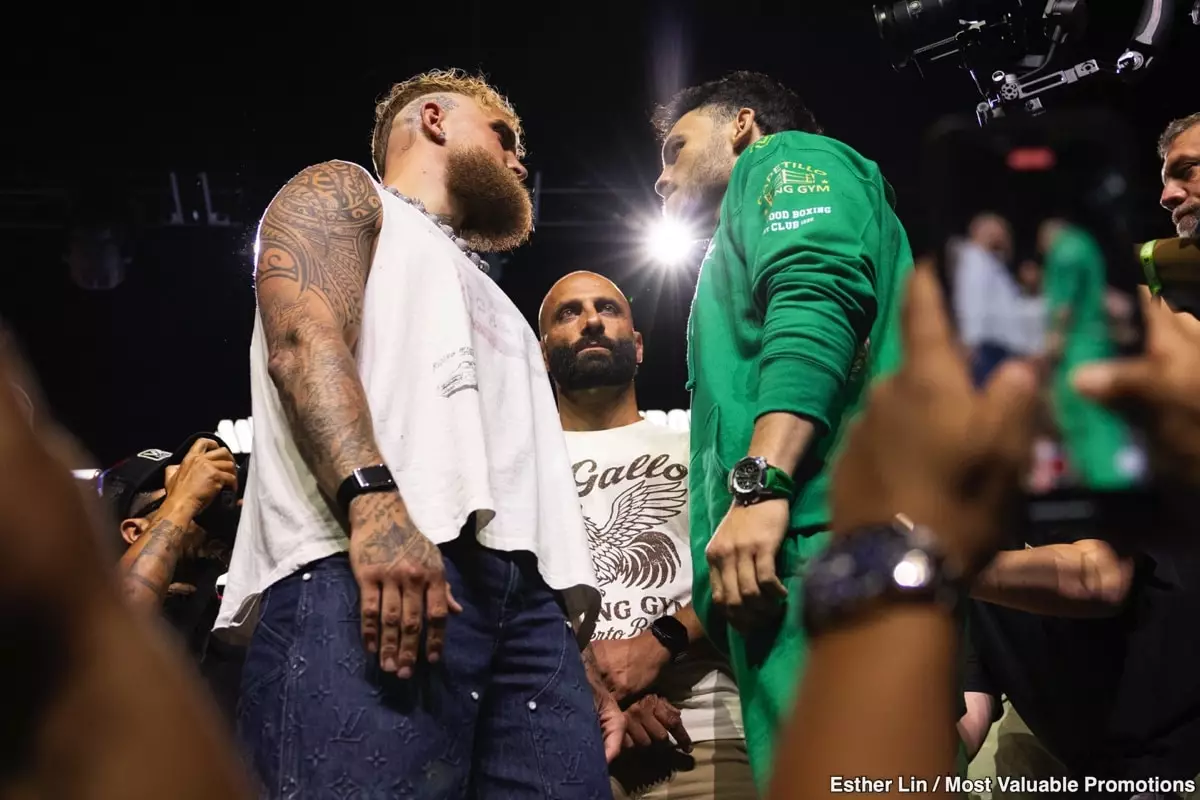In just over five years, Jake Paul has transformed from a social media influencer into a prominent figure within the professional boxing world. Whether you admire him or dismiss him, it’s impossible to ignore the footprint Paul has left. One of his most significant contributions has been his innovative approach to boxing’s promotion and accessibility. By leveraging platforms like Netflix, Paul succeeded in broadcasting boxing events to massive streaming audiences, something relatively unprecedented until his intervention. This shift has arguably helped reintroduce boxing to a younger, digital-native generation, an audience that many traditional promoters have struggled to engage.
Despite some of his matches, such as the heavily criticized bout with Mike Tyson in which the spectacle arguably overshadowed the sport itself, Paul’s promotional acumen is noteworthy. His efforts to spotlight women’s boxing, an underrepresented domain, also suggest a business-minded approach that goes beyond mere self-promotion. This industry-savvy move could help elevate the sport’s profile, expanding its fanbase in new and diverse directions.
Controversial Opponent Selections: Smart Strategy or Gimmick?
A hallmark of Jake Paul’s boxing career has been his choice of opponents, many of whom come from MMA backgrounds. Fighters like Anderson Silva, Nate Diaz, and Tyron Woodley brought instant intrigue due to their established reputations, creating crossover appeal that few boxing events can muster. Yet, Paul’s victories over these faded MMA stars have always been a double-edged sword in the eyes of critics. Detractors argue that beating non-boxers, often well past their primes, hardly qualifies as proof of Jake’s legitimacy in boxing.
But this criticism overlooks the calculated nature of these encounters. By selecting former MMA fighters with significant name recognition but questionable current boxing skills, Paul crafted narratives that thrilled combat sports fans. These marquee matchups activated both MMA loyalists eager to see their favorites triumph and boxing fans intrigued by an unconventional challenger. While the quality of opposition remains debated, no one can deny the strategy successfully held public attention and filled arenas.
The Shift to Authentic Boxing Competition
It wasn’t until Paul squared off against more traditional boxers that the spotlight turned harshly critical. His loss to Tommy Fury—an amateur boxer with deep boxing lineage—highlighted Paul’s limitations in a more pure boxing context. This defeat stripped away some of Paul’s mystique and exposed that despite his promotional skills and physical gifts, he still has much to prove technically.
The upcoming clash with Julio Cesar Chavez Jr., a former boxing star now regarded as a boxer past his prime, presents another fascinating case. Chavez Jr’s uneven recent performances and lifestyle distractions cast doubt on his current competitive viability. Yet, if judged by past peaks, Chavez Jr remains a daunting figure who could exploit Paul’s relative inexperience against seasoned professionals.
Navigating the Gamble of Age and Decline
Chavez Jr’s trajectory raises critical questions about the role of aging and personal discipline in boxing longevity. His losses and apparent decline contrast sharply with Paul’s unconventional but focused rise. However, predicting the outcome is anything but straightforward. While boxing purists find fault in Paul fighting opponents well beyond their best days from other sports, the unpredictability of Chavez Jr’s condition injects a genuine edge into this matchup.
The betting odds reflect this uncertainty: Chavez Jr is a significant underdog, yet the history and potential for resurgence in boxing keep stakes high. For Paul, securing a decision win against Julio will reinforce his evolving legitimacy. For Chavez Jr., it could be a late-career chance to remind the world he once held elite status.
Beyond Paul and Chavez: Boxing’s Undercard Rising
Meanwhile, the event’s undercard also deserves attention for showcasing promising talent. Fighters like Gilberto Ramirez and Yuniel Dorticos offer high-quality boxing that contrasts with the spectacle-oriented main event. Similarly, the contest between Floyd Schofield and Tevin Farmer combines rising prospects with seasoned skill, contributing substantial value to the fight night.
These undercard bouts implicitly emphasize a tension within modern boxing: the pull between entertainment spectacle and the sustained craft of the sport’s purists. Events headlined by personalities like Jake Paul bring financial boom and attention, but emerging boxers on the undercard carry the sport’s future on their shoulders.
—
While Jake Paul’s career invites polarized reactions, his undeniable ability to innovate promotion and energize audiences marks a noteworthy chapter in boxing’s evolution. The coming fights continue to test his mettle as a boxer beyond the glare of showmanship, challenging both his growth and the enduring question of legitimacy in the contemporary combat sports landscape.


Leave a Reply